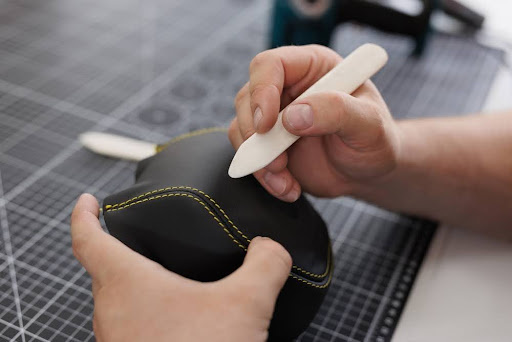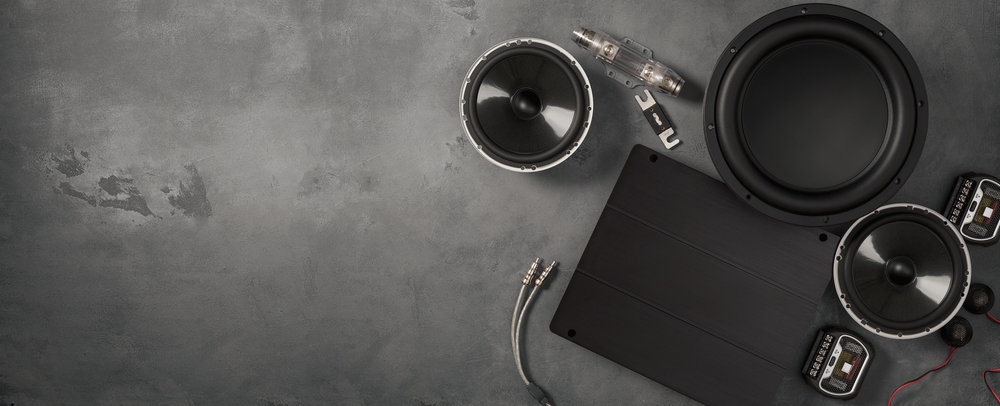When it’s time to buy a car, deciding between new and used may feel like a tough call. Whether you go with a brand-new ride or a dependable used model, you’ll want to be sure it fits your needs and budget. To make the best choice, it helps to consider some key factors, look at the pros and cons of each, and know what to ask if you’re leaning toward a used car.
In this article, let’s look at what you need to know about buying new vs. used cars, so that you can head into the process with confidence. Let’s start by looking at some factors you must consider when considering a car purchase.
Factors to Consider when considering buying a car
The decision to buy a car includes considering more than just your car type and budget. Several other factors can massively influence your decision of investing in a vehicle. Let’s take a quick look at some of these essential factors:
- Budget and Financing Options: For most of us, car payments can be a long-term commitment, and that is why it is important to know how much you’re comfortable spending each month (and upfront). To narrow down your options, make sure you don’t miss out on costs like insurance, taxes, and potential maintenance.
- Purpose and Lifestyle Needs: One of the main factors to consider before you zero in on a car is to think about how you plan to use the car – whether for daily commuting, family road trips, or off-road adventures. Other factors influence the type, size, and features of the car you choose include your family size, lifestyle, and typical travel distances.
- Fuel Efficiency and Environmental Impact: If you are someone who has a longer commute everyday, your fuel costs may add up quickly. In this case, it makes sense to consider a fuel-efficient or hybrid model to save on gas expenses and reduce your environmental footprint.
- Reliability and Resale Value: Before you zero in on a car, don’t forget to look into the reliability ratings and long-term performance of your chosen car model. It is a well known fact that a reliable car with a strong resale value can save you on repairs and maintain value, in case you decide to sell it later.
- Ratings and Safety Features: It should come as no surprise that safety is top priority for most car buyers. When you consider buying a car, it’s wise to look at the vehicle’s crash test ratings and available safety features, such as airbags, anti-lock brakes, and driver assistance systems. If the car has advanced safety tech, it can help prevent accidents and provide peace of mind.
- Insurance Costs: Different car models may have vastly different insurance premiums. Before you choose your car, get insurance quotes for the models you're interested in to make sure it fits your budget and avoid any last-minute surprises.
- Test Drive and Comfort: Finally, it is important to invest in a comfortable ride that takes you places with ease. Always make sure you test drive the interested car to assess the car's comfort, handling, and performance. Make sure it is comfortable, easy to handle, and has features like adjustable seating or infotainment options that enhance your driving experience.
Now that you know what you must consider when looking for your dream car, let’s move on to understanding the perks and pitfalls of buying a used car.
Pros and Cons of a Used Car
Investing in a used vehicle is not always a bad sign. If you carefully consider a few important factors, between buying a new vs used car, the used car may just be the better choice for you. Let’s look at a few factors that can help you make this decision.
| Pros | Cons |
| Used cars usually cost significantly less than new ones, helping you save on the initial purchase and afford a higher-end model | These vehicles often come with shorter or limited warranty coverage, resulting in you having to handle repair costs yourself if issues arise after purchase. |
| As a used car has already absorbed much of this initial depreciation, it may retain its current value longer. | Older cars may require more frequent repairs and part replacements, which can lead to higher maintenance costs over time. |
| Insurance costs are generally lower for used cars, as the vehicle’s value is lower, helping you save on overall ownership costs. | Without a detailed history, you may not know if the car has been in accidents, experienced flooding, or undergone major repairs. |
| With a used car, you get access to models that may no longer be available, giving you more options to match your preferences and budget. | Used cars might lack the latest technology, safety, and infotainment features available in new models, which may affect your driving experience and safety. |
| Since used cars are generally cheaper, you may need a smaller loan and could pay it off faster, saving on interest in the long run. | Interest rates on used car loans are typically higher than those for new cars, which can increase your monthly payments. |
| Certified Pre-Owned programs offer used cars that have been inspected and refurbished, providing peace of mind without the new car price. | With a used car, you’re limited to the features, color, and specifications that the previous owner selected. Customization may not be as readily available. |
| Buying a used car helps reduce the environmental footprint associated with manufacturing a new vehicle. | Older cars may not have the same fuel efficiency or emissions technology as newer models, which can increase fuel costs and environmental impact. |
In the next section, we’ll look at some vital questions you must ask your dealer before you zero in on a used car.
Key Questions to Ask Your Dealer
When looking at used cars, asking the right questions is important so that you get the best possible deal and avoid surprises later on. Here are some essentials you should cover with your dealer:
- What is the car's history?
Start by gathering as much information as you can on past accidents, repairs, or any major issues to understand the car's background.
- Can I see the maintenance records?
Another important check is to learn if the car has been regularly serviced.This would clearly indicate how well it’s been cared for.
- Is there a warranty or return policy?
One question that most of us may miss asking our dealer is to know if they offer any warranty or return policy for added protection after purchase.
- Has the car been inspected or certified?
Certified pre-owned cars are inspected and may come with a limited warranty, ensuring higher reliability.
- What is the mileage on the car?
Mileage affects the car's wear and future maintenance needs, so verify it’s reasonable for the car’s age.
- Are there any ongoing or known issues?
Ask if there are any mechanical or cosmetic issues so you’re aware of possible repair costs.
- Can I take it for an independent inspection?
A third-party inspection can provide an unbiased assessment of the car’s condition.
- What are the financing options?
Learn about available financing terms, interest rates, and monthly payment options for used cars.
- Are there any fees beyond the sticker price?
Confirm additional fees like documentation, taxes, or dealer fees to understand the total cost.
Pros and Cons of a New Car
| Pros | Cons |
| New cars come equipped with the latest safety features, infotainment systems, and driver-assistance technologies, offering a modern driving experience. | New vehicles are generally more expensive than used cars, which means a higher initial investment and potentially larger monthly payments. |
| New cars come with comprehensive warranties, often covering major repairs and parts for several years, offering peace of mind and reducing maintenance costs. | A new car can lose a significant portion of its value within the first few years, especially immediately after driving it off the lot. |
| With no prior wear and tear, new cars are generally more reliable and require fewer repairs, especially in the first few years. | Insurance premiums for new cars are typically higher due to their increased value, adding to the overall ownership cost. |
| Newer models often feature advanced fuel efficiency and meet stricter emissions standards, which can save money on gas and reduce environmental impact. | Due to the higher price of new cars, buyers may need to finance over a longer term, which could lead to paying more interest in the long run. |
| Buyers can choose the color, trim, and features of a new car to fit their exact preferences, allowing for a fully personalized purchase experience. | Purchasing a new car often comes with extra fees, such as sales tax, registration, and dealer fees, which can add to the total cost. |
| Many dealerships and manufacturers offer incentives, discounts, or low-interest financing options on new cars, which can reduce overall cost. | With rapid depreciation, new car buyers may end up owing more on the loan than the car’s market value, especially if financing a large amount. |
| New cars typically meet the latest safety standards and are equipped with features like adaptive cruise control, automatic braking, and lane-keeping assist, enhancing driver and passenger safety. | Advanced tech in new cars, like touchscreen controls and sensor-based features, can be costly to repair if they malfunction after the warranty period ends. |
The Verdict
The Verdict
Which is Better - New or Used?
Choosing between a new or used car depends on your priorities. New cars offer the latest technology, full warranties, and strong reliability with minimal maintenance, but come with a higher price tag and rapid depreciation. Used cars, on the other hand, are generally more affordable, depreciate more slowly, and provide a wider range of options, though they may have limited warranties and higher maintenance needs. If you’re after peace of mind, modern features, and can manage the higher cost, a new car might be your best bet. However, if you’re focused on budget, value retention, and variety, a well-maintained used car can be a smart move. No matter what, buying a car is an exciting investment—choose the one that best fits your needs and enjoy the drive!
Frequently Asked Questions
Between buying a new vs used car, what should you pick?
There are multiple factors that you must consider before you zero in on your car. If you want the latest features, a full warranty, and minimal maintenance, a new car is a great choice. But if you’re looking to save on upfront costs and get more value for your budget, a well-maintained used car could be the smarter option.
Which is easier to buy, a new car or a second-hand car?
Buying a new car is generally easier, as it involves straightforward pricing, warranties, and financing options directly from the dealership. Purchasing a second-hand car can take more research, from checking the car's history to arranging inspections, but it can also offer significant savings.
Are there any tax benefits to buying a used car?
Buying a used car can offer tax benefits, particularly for business owners. They can claim Input Tax Credit on GST, deduct loan interest and various vehicle-related expenses from taxable income, and potentially enjoy lower registration fees. These advantages help reduce overall tax liability while making a financially sound choice.




